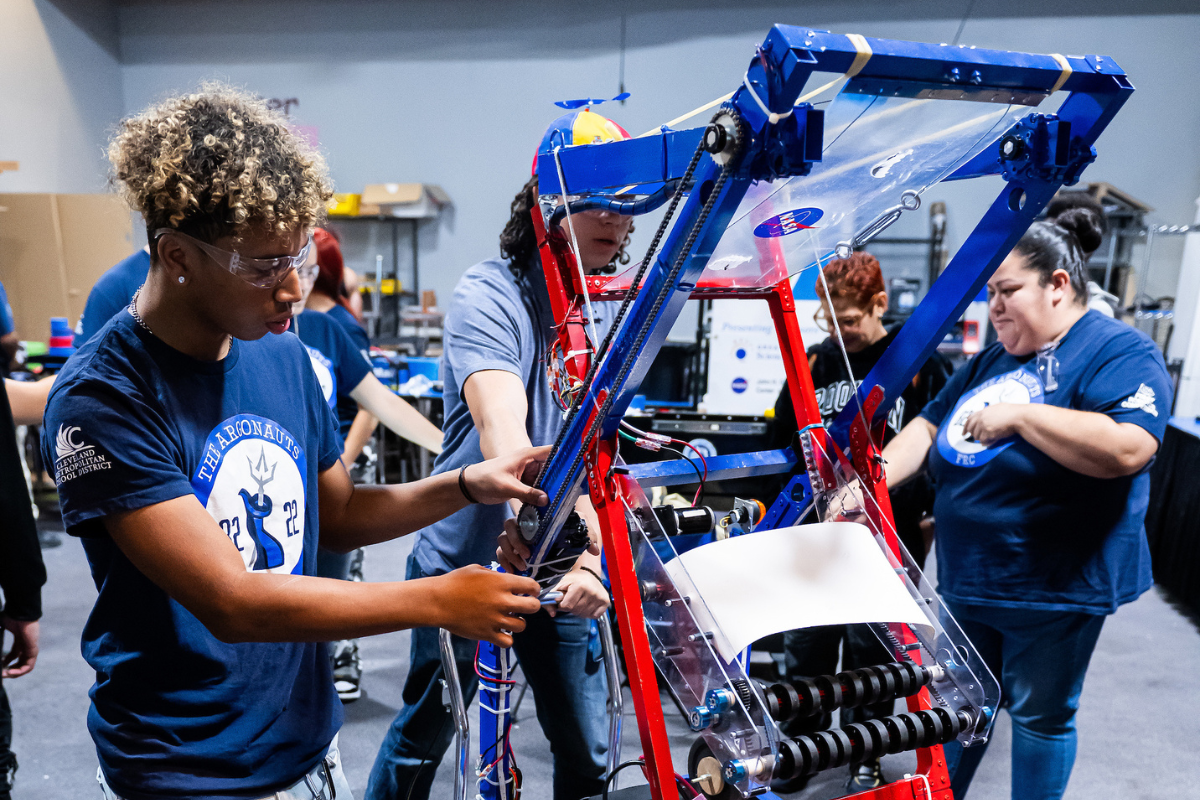My Insight Hub
Your go-to source for daily insights and updates.
Robots at Work: The Future of Your Job Might Be Metal
Discover how robots are transforming the workplace and what it means for your future job. Embrace the metal revolution today!
How Robots are Transforming the Modern Workplace
In recent years, robots have significantly influenced the landscape of the modern workplace, enhancing productivity and efficiency across various industries. From manufacturing to healthcare, robotic automation is streamlining processes that were once time-consuming and labor-intensive. For instance, in manufacturing plants, robots are now capable of performing repetitive tasks with precision, reducing human error and minimizing waste. According to industry experts, this shift not only accelerates production rates but also allows human workers to focus on more strategic roles, thereby fostering a more innovative workplace environment.
The integration of robots into everyday operations is also transforming the way employees interact with technology. With advancements in artificial intelligence and machine learning, robots are becoming more intuitive and adaptable. This evolution has given rise to collaborative robots, or cobots, designed to work alongside human employees, enhancing teamwork rather than replacing jobs. As businesses continue to adopt these technologies, it is clear that the future of work lies in embracing automation while cultivating the skills needed to collaborate effectively with these sophisticated machines.

Are Robots Taking Over Jobs? Understanding the Impact on Employment
The rise of automation and artificial intelligence has sparked an ongoing debate about whether robots are taking over jobs. While some industries have embraced these technological advancements, leading to increased efficiency and productivity, others face challenges as machines replace human labor. According to recent studies, it is estimated that robots could displace millions of jobs in sectors such as manufacturing, transportation, and retail. However, it's essential to recognize that while certain jobs may vanish, new opportunities also arise in fields like robotics engineering, AI programming, and maintenance of automated systems.
Understanding the impact of automation on employment requires a nuanced approach. For instance, robots can enhance job roles by taking over repetitive tasks, allowing human workers to focus on more complex and creative responsibilities. This shift demands a workforce adaptation that emphasizes skills development and lifelong learning. Labor markets may need to prioritize reskilling programs to help workers transition into emerging roles that leverage human creativity and emotional intelligence—qualities that machines cannot replicate. Ultimately, the conversation around whether robots are taking over jobs should not only consider job loss but also the potential for job transformation.
The Rise of Automation: What Skills Will Be Essential for the Future?
The rise of automation is reshaping industries and redefining job roles across the globe. As machines and algorithms take on more tasks, skills once considered essential may become obsolete. To thrive in this rapidly changing landscape, individuals must adapt by acquiring new competencies that emphasize creativity, emotional intelligence, and complex problem-solving. In this era of technological advancement, it is crucial to identify and develop skills that will remain valuable regardless of the automation trend.
Some of the key skills that will be essential for the future include:
- Digital literacy: Proficiency in using digital tools and understanding data.
- Critical thinking: The ability to analyze and evaluate information to make informed decisions.
- Interpersonal skills: Effective communication and collaboration in diverse teams.
- Adaptability: The capability to learn and adjust to new technologies and processes quickly.